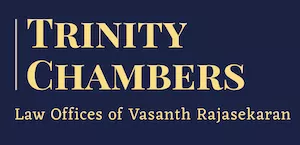Introduction
In a recent decision in Delhi Metro Rail Corporation Ltd. v. HCC Samsung JV1, the High Court of Delhi has reaffirmed the principle that parties cannot use a meritless application under Section 33 of the Arbitration and Conciliation Act, 1996 ("Arbitration Act") to extend the limitation period for filing a challenge under Section 34 of the Arbitration Act.
In the instant case, the High Court ruled that the application filed by DMRC under Section 33 of the Arbitration Act was in the nature of a "review" rather than a mere correction of computational or typographical errors, thereby rendering the subsequent petition under Section 34 of the Arbitration Act time-barred. The judgment stresses upon the legislative intent behind the Arbitration Act, which aims to promote efficiency and ascribe finality to the arbitral process. In this article, we navigate through the facts of the case and the findings of the High Court.
Brief Facts
The dispute arose from a contract between Delhi Metro Rail Corporation Ltd. ("DMRC") and HCC Samsung JV ("HCC") for the design and construction of tunnels and metro stations under Phase III of the Delhi Metro Project. The contract, initially awarded in 2013, faced delays, leading to multiple extensions. Eventually, HCC Samsung JV submitted claims for compensation on account of variations and delays. DMRC rejected these claims, prompting the respondent to invoke arbitration in 2019. The Arbitral Tribunal, in its majority award dated 23 February 2024, ruled in favour of HCC, awarding INR 60,28,15,579 (Indian Rupees Sixty Crore, Twenty-Eight Lakh, Fifteen Thousand, Five Hundred and Seventy-Nine) and rejecting DMRC's counterclaims.
DMRC, dissatisfied with the award, filed an application ("Section 33 Application") under Section 33 of the Arbitration Act, purportedly to correct "typographical and computational" errors. The Arbitral Tribunal dismissed this application on 3 June 2024, holding that the corrections sought by DMRC went beyond the scope of Section 33 and effectively constituted a review of the award. DMRC then filed a challenge under Section 34 of the Arbitration Act on 31 August 2024, contending that the limitation period should be computed from the date of dismissal of its Section 33 Application rather than the date of receipt of the original award.
Arguments by the Parties
HCC, the respondent, argued that DMRC's application under Section 33 of the Arbitration Act was an attempt to circumvent the limitation period prescribed under Section 34(3) of the Arbitration Act.
Relying on judicial precedent, HCC argued that only a bona fide application under Section 33 of the Arbitration Act, strictly limited to typographical or computational corrections, could extend the limitation period prescribed for putting up a challenge under Section 34 of the Arbitration Act. Since DMRC's Section 33 Application effectively sought a reconsideration of substantive issues, it was in the nature of a review and did not suspend the running of time under Section 34.
DMRC, on the other hand, maintained that its Section 33 application was filed in good faith to rectify errors in the award. It argued that the Tribunal's rejection of the application should mark the starting point for computing the limitation period for filing a challenge under Section 34. DMRC sought to differentiate its application from cases where Section 33 had been misused for disguised reviews.
Findings of the High Court
The Delhi High Court held that DMRC's application under Section 33 was not a genuine request for correction but an attempt to seek a review of the Tribunal's reasoning and methodology. The High Court observed that Section 33 is strictly confined to correcting clerical, typographical, or computational errors and does not permit substantive modifications or reconsideration of findings.
The High Court relied on the Supreme Court's decisions in Gyan Prakash Arya v. Titan Industries Ltd., (2023) 1 SCC 153 and State of Arunachal Pradesh v. Damani Constructions, (2007) 10 SCC 742, both of which emphasised that an application under Section 33, if amounting to a review, would not extend the limitation period for challenging the award. Applying this principle, the High Court held that the limitation period for filing a Section 34 challenge began on 23 February 2024, the date DMRC received the arbitral award. Since DMRC filed its challenge on 31 August 2024, well beyond the prescribed period, the petition was dismissed as time-barred.
Comment
The Delhi High Court's ruling is a strong endorsement of the finality of arbitral awards and the strict limitation regime governing challenges to them. By rejecting DMRC's attempt to extend the limitation period through a disguised review application under Section 33 of the Arbitration Act, the High Court has reinforced the principle that arbitration must remain an expeditious and efficient dispute resolution mechanism.
Footnote
1 Delhi Metro Rail Corporation Ltd. v. HCC Samsung JV, 2025: DHC:1224.
The content of this article is intended to provide a general guide to the subject matter. Specialist advice should be sought about your specific circumstances.



